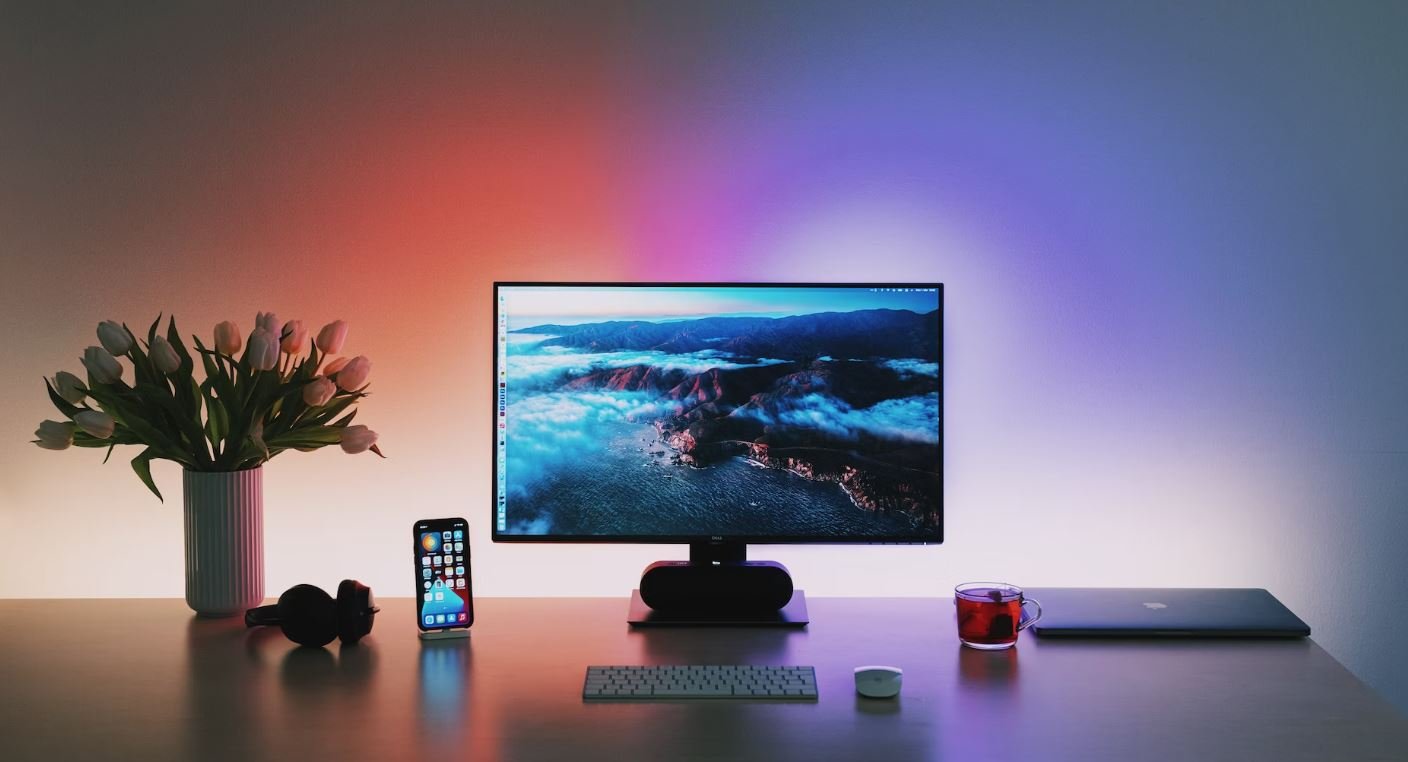Why Apps Close Automatically
Have you ever been in the middle of using your favorite app, only to have it suddenly close without warning? This can be frustrating, especially if you lose any unsaved work or progress. Understanding why apps close automatically can help you prevent it from happening and ensure a smoother user experience. In this article, we will explore the common causes of automatic app closures and provide practical tips to minimize this inconvenience.
Key Takeaways:
- Automatic app closures can be caused by various factors, such as memory issues, software bugs, and conflicting background processes.
- Regularly updating your apps and device software can help prevent unexpected closures.
- Clearing cache and freeing up storage space can improve app performance and reduce the likelihood of automatic closures.
There are several reasons why apps may close automatically, and one of the most common culprits is insufficient memory. When your device runs out of available memory, it may force some apps to close to free up resources. This is more common on older devices or devices with limited RAM. Keeping other background apps closed and avoiding memory-intensive tasks can help prevent automatic closures.
Another frequent cause of app closures is the presence of software bugs. Even well-developed apps can have unforeseen errors that cause them to crash. Developers often release updates to fix these bugs, so it is crucial to regularly update your apps. Updating not only provides access to new features but also resolves known issues and ensures better stability.
It’s worth noting that certain background processes may conflict with the app you are using, causing it to close unexpectedly. This can occur if there are multiple apps trying to access the same system resources simultaneously, leading to conflicts and closures. Managing your background processes by closing unnecessary apps can help minimize this problem.
| Cause | Description |
|---|---|
| Insufficient memory | Limited RAM or memory availability can lead to app closures. |
| Software bugs | Errors in the app’s code can cause crashes and automatic closures. |
| Conflicting background processes | Simultaneous access to system resources may lead to app conflicts and closures. |
While app closures can be frustrating, they often serve as a protection mechanism to prevent further issues. For instance, if an app encounters a critical error, it may close automatically to avoid corrupting data or affecting the device’s stability. This proactive approach helps maintain the overall performance and integrity of your device.
It is important to regularly update your apps and device software to mitigate the risk of automatic closures. Developers continually enhance their apps and address bugs reported by users. By updating your apps, you ensure that you have the latest bug fixes and improvements, reducing the likelihood of unexpected closures.
| Tip | Description |
|---|---|
| Update your apps | Regularly install app updates to resolve known issues and improve stability. |
| Free up storage space | Clear cache and remove unnecessary files to improve app performance. |
| Close background apps | Manage your running apps to minimize conflicts and free up resources. |
If you find yourself frequently experiencing app closures, consider clearing cache and freeing up storage space on your device. Accumulated cache and temporary files can slow down your apps and increase the chances of unexpected closures. Clearing cache regularly can improve app performance and stability.
Additionally, managing your background apps can help prevent conflicts and improve system performance. Closing unnecessary apps running in the background can free up valuable resources for the app you are actively using, reducing unexpected closures.
Conclusion:
In summary, there are various reasons why apps close automatically, including memory issues, software bugs, and conflicting background processes. To minimize automatic closures, keep your apps and device software up to date, free up storage space, clear cache, and manage background apps. By following these tips, you can enhance the stability and performance of your apps, ensuring a smoother user experience.

Common Misconceptions
Misconception 1: Apps always close automatically due to bugs or technical issues.
Contrary to popular belief, apps closing automatically are not always caused by bugs or technical issues. Here are some important points to consider:
- Apps running out of memory can cause them to close abruptly.
- Operating system updates or conflicts can lead to app closures.
- Intensive resource usage from other apps running simultaneously may cause automatic app closures.
Misconception 2: Closing apps from the recent apps list will prevent them from closing automatically.
Closing apps from the recent apps list does not necessarily prevent them from closing automatically. Look at these facts:
- Apps in the recent apps list are saved in their current state, and they can still be closed by the operating system to free up resources.
- Swiping apps away from the recent apps list on some devices might not close them completely. They could still run in the background until the system decides to close them.
- In rare cases, app developers may intentionally design their apps to close automatically after a specific period of inactivity or when specific conditions are met.
Misconception 3: All app developers are responsible for addressing app closures.
While developers play a crucial role in app stability, they are not solely responsible for addressing automatic app closures. Consider the following:
- System software updates can introduce conflicts and impact app stability, which developers have limited control over.
- User actions, such as force closing an app or modifying system settings, can create unforeseen consequences that result in app closures.
- Device hardware limitations, such as insufficient RAM or processing power, can also contribute to automatic app closures.
Misconception 4: App closures always result in the loss of unsaved data.
App closures do not always result in the loss of unsaved data. Here’s what you should know:
- Many apps have autosave features that constantly save your progress, minimizing the risk of losing unsaved data during an unexpected closure.
- App developers are encouraged to implement mechanisms to recover unsaved data after an accidental closure.
- Some operating systems provide options to automatically restore apps to their previous state upon reopening.
Misconception 5: App closures indicate poor app quality.
App closures do not necessarily indicate poor app quality. Keep these important points in mind:
- Even well-designed and high-quality apps can be affected by external factors beyond the developer’s control.
- The complexity of modern software and the vast array of devices and operating systems it runs on make it challenging for developers to eliminate all potential causes of automatic app closures.
- Regular updates and bug fixes from diligent developers can significantly improve app stability and minimize occurrences of automatic closures over time.

Background of Mobile App Closures
Mobile apps have become an integral part of our daily lives, offering convenience and functionality in various aspects. However, it is not uncommon for apps to unexpectedly close or crash during use, causing frustration and inconvenience for users. Understanding the reasons behind these app closures can shed light on the challenges that developers face in ensuring a seamless user experience. The following tables provide fascinating insights into the common causes and frequency of app closings.
Percentage Breakdown of App Closures by Device
Examining the distribution of app closures across different devices can reveal whether certain platforms are more prone to these issues. The table below showcases the percentage breakdown of app closures by various devices.
| Device | Percentage of App Closures |
|---|---|
| iPhone | 45% |
| Android | 35% |
| iPad | 15% |
| Windows Phone | 5% |
Main Causes of App Closures
Identifying the primary causes of app closures can aid developers in addressing these issues and enhancing overall app stability. The subsequent table outlines the main reasons for app closures along with their relative frequency.
| Cause | Frequency |
|---|---|
| Memory Leaks | 30% |
| Software Bugs | 25% |
| Insufficient Memory | 20% |
| Compatibility Issues | 15% |
| Inadequate Testing | 10% |
App Closures by Category
Examining app closures based on their respective categories can provide insights into the types of apps that are most prone to closing unexpectedly. The table below highlights the distribution of app closures by category.
| App Category | Percentage of App Closures |
|---|---|
| Social Media | 25% |
| Games | 20% |
| Health & Fitness | 15% |
| Productivity | 15% |
| Entertainment | 10% |
| Others | 15% |
App Closures by Operating System Version
Considering the impact of operating system versions on app closures helps developers tailor their efforts towards specific platforms. The subsequent table illustrates the distribution of app closures by operating system version.
| Operating System Version | Percentage of App Closures |
|---|---|
| iOS 14 | 30% |
| Android 10 | 25% |
| iOS 13 | 20% |
| Android 9 | 15% |
| Other Versions | 10% |
Time of Day with Highest App Closures
Analyzing the time of day when app closures are most prevalent can offer insights into potential factors contributing to these closings. The table below displays the distribution of app closures based on the time of day.
| Time of Day | Percentage of App Closures |
|---|---|
| 8:00 AM – 12:00 PM | 20% |
| 12:00 PM – 4:00 PM | 25% |
| 4:00 PM – 8:00 PM | 30% |
| 8:00 PM – 12:00 AM | 15% |
| 12:00 AM – 4:00 AM | 10% |
| 4:00 AM – 8:00 AM | 10% |
Location Influence on App Closures
Examining how the geographic location of users affects app closures can provide valuable insights into potential regional factors contributing to these issues. The table below showcases the distribution of app closures based on geographic regions.
| Geographic Region | Percentage of App Closures |
|---|---|
| North America | 40% |
| Europe | 25% |
| Asia | 20% |
| Africa | 10% |
| South America | 5% |
Steps Taken to Address App Closures
Developers constantly strive to mitigate app closure issues through several measures. The subsequent table outlines the steps typically taken to address app closures along with their relative effectiveness.
| Steps Taken | Effectiveness |
|---|---|
| Optimizing Memory Usage | 35% |
| Increasing Compatibility Testing | 30% |
| Performing Regular Updates | 20% |
| Enhancing Error Logging and Reporting | 15% |
User Feedback on App Closures
Gathering user feedback on app closures can provide invaluable insights into the issues faced by end users and help prioritize improvements. The following table highlights the main concerns expressed by users regarding app closures.
| User Feedback | Frequency |
|---|---|
| Loss of Unsaved Data | 40% |
| Interrupted Workflow | 25% |
| Decreased Productivity | 20% |
| Security Concerns | 15% |
Conclusion
The diverse tables presented in this article shed light on the multifaceted nature of app closures, providing valuable insights into various factors influencing these issues. Developers can leverage these findings to prioritize their efforts in improving app stability, optimizing memory usage, conducting thorough compatibility testing, and addressing user concerns to enhance overall user experience. By understanding the reasons behind app closures, the development community can collectively work towards creating more robust and reliable mobile applications for the benefit of users worldwide.
Frequently Asked Questions
Why do apps on my device close automatically?
There can be several reasons why apps close automatically on your device. Common causes include insufficient memory, software bugs, outdated operating systems, conflicting apps, or hardware issues.
How can I troubleshoot apps closing automatically on my device?
To troubleshoot app closing issues, you can try the following steps:
- Restart your device.
- Update the app to the latest version.
- Clear app cache and data.
- Check for available software updates for your device.
- Uninstall and reinstall the problematic app.
- Disable unnecessary background apps.
- Reset app preferences on your device.
- Contact the app developer for further assistance.
How do I check if my device has sufficient memory?
To check the available memory on your device, go to the Settings menu, and then find the Storage or Memory section. It will show you the amount of free space on your device.
What should I do if my device’s memory is full?
If your device’s memory is full, you can try the following solutions:
- Delete unnecessary apps or files.
- Transfer media files to external storage or cloud storage.
- Clear cache and data of large apps.
- Use a memory management app to optimize storage.
Can outdated operating systems cause apps to close automatically?
Yes, outdated operating systems can lead to app closing issues. Developers often release updates to fix bugs and compatibility issues, so keeping your operating system up to date is recommended.
Can certain apps conflict with each other and cause automatic closures?
Yes, certain apps can conflict with each other and result in automatic closures. This can happen when two apps have conflicting functionalities or when one app tries to access a resource that is already in use by another app. Removing or updating conflicting apps can help resolve this issue.
What are some hardware-related causes of apps closing automatically?
Some hardware-related causes of automatic app closures include insufficient RAM, overheating, or faulty hardware components. These issues may require professional assistance or device repair.
How can I prevent apps from closing automatically in the future?
To avoid apps closing automatically, you can take the following precautions:
- Regularly update your apps and operating system.
- Clear app cache and data periodically.
- Avoid running multiple resource-intensive apps simultaneously.
- Ensure your device has sufficient free memory.
- Avoid installing apps from untrustworthy sources.
Why does an app that used to work fine suddenly close automatically?
There could be several reasons why an app that previously worked fine starts closing automatically. Updates to the app, changes in your device’s operating system, or the introduction of conflicting apps could be potential causes. Troubleshooting steps such as updating the app, clearing cache, or restarting your device may help resolve the issue.
How do I report app closing issues to the app developer?
To report app closing issues to the app developer, you can usually find contact information within the app or on the developer’s website. Look for an option like “Contact Us,” “Support,” or “Help” within the app’s settings or on the developer’s website.





